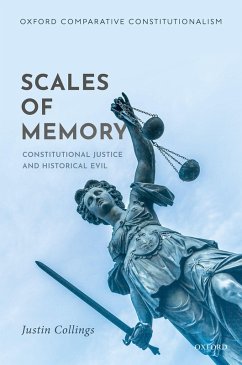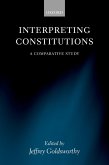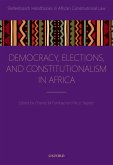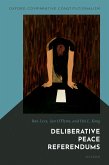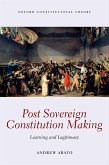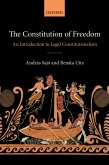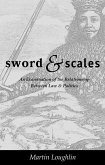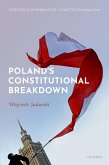Since the Second World War, constitutional justice has spread through much of the democratic world. Often it has followed in the wake of national calamity and historical evil - whether fascism or communism, colonialism or apartheid. Unsurprisingly, the memory of such evils plays a prominent role in constitutional adjudication. This book explores the relationship between constitutional interpretation and the memory of historical evil. Specifically, it examines how the constitutional courts of the United States, Germany, and South Africa have grappled, respectively, with the legacies of slavery, Nazism, and apartheid. Most courts invoke historical evil through either the parenthetical or the redemptive mode of constitutional memory. The parenthetical framework views the evil era as exceptional - a baleful aberration from an otherwise noble and worthy constitutional tradition. Parenthetical jurisprudence reaches beyond the evil era toward stable and enduring values. It sees the constitutional response to evil as restorative rather than revolutionary - a return to and reaffirmation of older traditions. The redemptive mode, by contrast, is more aggressive. Its aim is not to resume a venerable tradition but to reverse recent ills. Its animating spirit is not restoration, but antithesis. Its aim is not continuity with deeper pasts, but a redemptive future stemming from a stark, complete, and vivid rupture. This book demonstrates how, across the three jurisdictions, the parenthetical mode has often accompanied formalist and originalist approaches to constitutional interpretation, whereas the redemptive mode has accompanied realist and purposive approaches. It also shows how, within the three jurisdictions, the parenthetical mode of memory has consistently predominated in American constitutional jurisprudence; the redemptive mode in South African jurisprudence; and a hybrid, parenthetical-redemptive mode in German constitutional jurisprudence. The real-world consequences of these trends have been stark and dramatic. Memory matters, especially in constitutional interpretation.
Dieser Download kann aus rechtlichen Gründen nur mit Rechnungsadresse in A, B, BG, CY, CZ, D, DK, EW, E, FIN, F, GR, HR, H, IRL, I, LT, L, LR, M, NL, PL, P, R, S, SLO, SK ausgeliefert werden.

